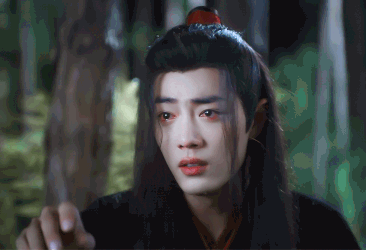It's been too long since I've brought on another author for Q&A, and I'm pleased to be doing so again with Darlene Foster! I met Darlene (in an online sense) through our publisher in common, Central Avenue Publishing, and she's one of the most upbeat, easygoing, fun-loving writers I know. Her Amanda Travels series is a wonderful set of books for middle-grade readers in which the young Amanda visits a new country in each book and always encounters an adventurous mystery to untangle. They're perfect for the young armchair traveler—or real-world traveler—in your life.

The eighth book in the series comes out this May: Amanda in Malta: The Sleeping Lady. I got to read an advance copy of it, and was instantly longing to go to Malta and soak up the sun and stroll between the stone buildings with their artistically idiosyncratic door knockers!

Darlene was kind enough to answer some questions for me as well, so let's dive into those:
Q: When did you start writing fiction? What were your earliest stories like?
A: I’ve been telling stories since I learned to talk. My grade three teacher, Miss Roll, encouraged me to write them down. When I was twelve years old I had a short story published in a local newspaper. Called Stretch Your Food Dollar, it was about two friends having an adventure in Woolworths department store. I guess the idea of two girls having an adventure has been there for a long time!
Q: When you visit places, how much are you thinking about a possible story while you’re there? Or does the story idea come later?
A: When I visit interesting places, I am always thinking about how I could use it in a story. When I was in Malta, I kept saying to my husband, “Amanda would love it here!” I take a lot of pictures and jot down notes wherever we go. I once read that a writer never really takes a vacation as they are always looking for story ideas. I can attest that is true.
Q: What draws you to writing middle-grade fiction as opposed to stories for other age groups?
A: Some would say I have never moved past twelve myself! For some reason, I can easily relate to this age group. I think they are wonderful. Tweens are not little kids anymore but not yet terrible teenagers. They can be so astute and mature at times but still naïve and unsure of themselves at other times. It is the age when they start to assert their independence and become curious and questioning. It is my favourite age and I have no intention of growing up.
Q: I admire Amanda’s fearlessness and willing to take on adventures. Is that what you were like at her age?
A: It wasn’t what I was like, but it was what I wished I was like. I lived on a farm and we didn't travel or have a television. So my world was very narrow. I was timid, bookish, and the only adventures I had were in my imagination. So I created a character I would have liked to be.
Q: Give some advice to the aspiring travelers of the world: what are your must-bring items that lend to happier traveling?
A: The most important thing to bring is an open mind. Accept that things will be different wherever you go, the food, smells, people, climate, customs, etc. Embrace those differences and you will have an enjoyable and enriching time. Also bring a camera, a notepad, and pen. Everything will be overwhelming and you will never be able to remember it all. Pictures and notes bring it all back. I would rather look at my travel photos than watch TV.
Q: What are you writing now, or planning to write next?
A: I am halfway through writing Amanda in France: Fire in the Cathedral. Amanda will fall in love with Paris, Versailles, and Monet’s garden in Giverny. Oh, and she will get to stay in a bookstore! Wouldn't every young girl like to visit France? I know I would have loved it.
----
Darlene Foster is a Canadian author who has written the popular Amanda Travels series, featuring a spunky twelve-year-old who loves to travel to unique places where she encounters mystery and adventure while learning about another culture. Readers of all ages enjoy travelling with Amanda as she unravels one mystery after another in various countries. Darlene has won prizes for her short stories and a number of them have been published in anthologies. She has also written a bilingual book for English/Spanish readers.
Darlene grew up on a ranch near Medicine Hat, Alberta, where her love of reading inspired her to travel the world and write stories. Over the years she held wonderful jobs such as an employment counsellor, ESL teacher, recruiter, and retail manager, and wrote whenever she had a few spare minutes. She is now retired and has a home in Spain where she writes full time. When not travelling, meeting interesting people, and collecting ideas for her books, she likes to spend time with her husband and entertaining dog, Dot.
Her books include Amanda in Arabia: The Perfume Flask, Amanda in Spain: The Girl in The Painting, Amanda in England: The Missing Novel, Amanda in Alberta: The Writing on the Stone, Amanda on The Danube: The Sounds of Music, Amanda in New Mexico: Ghosts in the Wind, and Amanda in Holland: Missing in Action.

Amanda in Malta: The Sleeping Lady will be released in the spring of 2021.
Buy links
Amazon Canada here
Amazon UK here
Amazon US here
Barnes and Noble here
Chapters/Indigo here
You can connect with Darlene on social media at the links below:
Facebook
Twitter
Instagram
LinkedIn
Goodreads



















